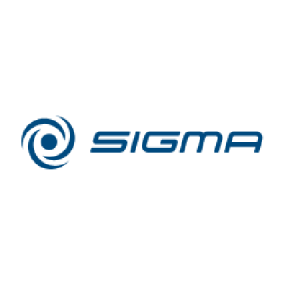Second, Plaintiffs debated one to simply comments one to disparage personal pay-day lenders create stigmatic comments, hence comments regarding payday lenders while the a category do not serve having a because of process claim
Second, Advance The usa appears to have been successful while in the much of the latest several months in which it was suffering family savings terminations. At the dental dispute, the events consented one Improve America is successful for the 2013 and you can 2014 and this would-have-been effective within the 2015 but to own a-one-big date discount of good often. Advance America has never submitted proof appearing why these were able to keep profitability even after terminations into the 2013 and you will 2014, or a good causal linkage between earlier terminations plus the loss it suffered for the 2015 and 2016. Hence, the new Courtroom does not have any foundation so you’re able to extrapolate regarding possible terminations so you’re able to stop there is a critical threat so you can Improve America’s team.
He has got introduced no evidence of the earlier in the day monetary results, therefore it is virtually impossible for the Court to understand the brand new feeling regarding earlier terminations on the people and draw findings regarding the the long term feeling regarding forecast terminations.
Plaintiffs essentially inquire the Court to just accept in the face value their declarations, which direly alert the newest Court one its businesses deal with an imminent danger. These types of declarations are only too conclusory and you will speculative so you’re able to have confidence in.
To succeed on the merits, Plaintiffs must ultimately prove that Federal Defendants made stigmatizing statements about them and that these stigmatizing statements triggered banks to terminate their business relationships with Plaintiffs. Plaintiffs contend that Federal Defendants have engaged in a wide-ranging “campaign of backroom strong-arming,” pressuring banks to payday loan places in Gladstone Michigan terminate their relationships with payday lenders. Advance America Mot. at 2; pick and additionally TAC at ¶¶ 4-8.
Federal Defendants argue that in the event Plaintiffs could establish the new lives of these a campaign, they might struggle to allow it to be on deserves of their due procedure claims. First, in the original injunction reading Federal Defendants argued you to definitely whenever you are Plaintiffs have to show you to definitely Federal Defendants produced stigmatic statements on the subject, statements you to put “pressure” towards financial institutions aren’t statements that stigmatize Plaintiffs. The newest Court does not have to address such arguments. Plaintiffs have failed to determine you to definitely a promotion facing her or him try gonna occur. More over, he’s got produced little direct proof of the fresh new comments you to make-up this so-called campaign. The fresh Courtroom need not view hypothetical statements to determine whether or not they create or won’t constitute impermissible stigma.
On this occasion, Plaintiffs have not displayed that they are probably succeed in exhibiting such as for example a wide-varying strategy stayed and you can, properly, don’t have demostrated an effective causal outcomes of bank terminations and Federal Defendants’ conduct
Plaintiffs introduce little direct evidence of such a wide-ranging campaign. Instead, they have introduced only a few scattered statements in which Federal Defendants may have pressured a small number of banks to discontinue their relationships with specific payday lenders. Look for e.grams. Letter from M. Anthony Love (“Love Letter”) [Dkt. No. 35-1] (letter from FDIC supervisor to unidentified bank expressing concerns that relationship with unidentified payday lender increased reputation risk); Declaration of Ed Lette [Dkt. No. 87-2] (stating that Business Bank of Texas was pressured to terminate relationship with Power Finance because it was a payday lender); First Lane Lane (“Second Lane Declaration”) [Dkt. No. 126-2] (stating that two anonymous banks told Plaintiff Check Into Cash that it was being terminated because of pressure from Federal Defendants).
Much of Plaintiffs’ evidence is problematic. Some of it is hearsay – indeed anonymous double hearsay – which the Court considers unreliable and of little persuasive value. See FTC v. CCC Holdings, Inc., 2009 WL 10631282, *2 (D.D.C. ) (although hearsay is allowable in deciding a motion for a preliminary injunction, double hearsay evidence was not admitted because it lacked “sufficient indicia of reliability”). Moreover, even that evidence which is not cloaked in anonymity is directly contradicted by sworn statements from employees of Federal Defendants. Select e.g. Declaration of NS Ward III [Dkt. No. 89-1] (sworn declaration of OCC employee stating that Business Bank of Texas was never pressured to terminate relationships with payday lenders generally, or Power Finance, specifically, and thereby directly contradicting the Declaration of Ed Lette).











